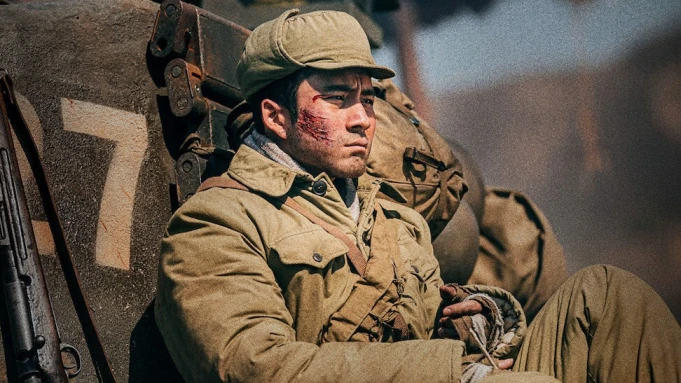
The Battle at Lake Changjin (Courtesy of Bona Film Group)
I have learned that the highest-grossing film in China is The Battle at Lake Changjin (the Chinese name for the Battle of the Chosin Reservoir), a film about China’s entry into the Korean War, which coincided with one of America’s worst military defeats in the winter of 1950-1951. The Korean War (1950-1953) is largely forgotten in the United States, although the United States lost about 35,000 men in that war. Many American students do not know we fought there as that war is overshadowed by World War II and the Vietnam War. It might be said that for the United States there were two Korean Wars: the first was against the North Koreans from June through the fall of 1950, whom we defeated. The second was against the Chinese from the winter of 1950 to the summer of 1953. This was a draw.
It is not a surprise that this film would be so popular. For the Chinese communists, entering the Korean War on the side of North Korea was a major turning point for the war and for themselves. Fighting the Americans (the UN Forces) to a stalemate was a major victory for the new government of this poor but populous nation. It showed they could survive and could stand up to one of the world’s major military powers.
The fact is that their entry into the war caused a constitutional crisis for the United States as General MacArthur, in command of UN forces in Korea, challenged Truman’s authority over the issue of widening the war by openly suggesting that we, 1) militarily invade China and, 2) use nuclear weapons. Truman prevailed and neither thing happened. Korea became the definition of limited warfare. We stabilized our number of troops there at about 225,000 and simply replaced casualties. We did not escalate by adding more. Korea, thus, became known among American soldiers as the meatgrinder. The Chinese entry caused Truman to abandon the idea of reuniting Korea which Truman decided to do after chasing the North Koreans out of South Korea. This meant that the war had become untenable for the United States and quickly became unpopular as Truman struggled to find a way out. It cost him any chance of running for the presidency again in 1952 which he was eligible to do. MacArthur famously said, in defense of his position, “there is no substitute for victory.” To paraphrase Henry Higgins, “If you can’t get what you can appreciate, then you better appreciate what you can get.” This means, for politicians, there are always substitutes for victory.
The fact that their entry caused so much political strife in the United States had to make the Chinese feel good. MacArthur had been overconfident after the Inchon invasion in September, which turned the tide of the war to the UN troops. He felt he could finish the war by Christmas 1950, especially after winning the Battle of Pyongyang on October 19, 1950, just as Chinese troops were crossing the Yalu River that separates North Korea from China. MacArthur was right that he would have won by Christmas if the Chinese had not entered.
Chinese losses were tremendous but that does not matter for a patriotic movie like The Battle at Lake Changjin. In fact, the sacrifice of so many young men only underscores the sense of patriotism, what the country had to pay to stand against American “aggression” as the Chinese had warned the Americans that they would enter the war if UN forces crossed the 38th parallel into North Korea. It is to imagine a movie about the Korean War, regardless of whether the filmmaker was one of the finest among the living today, making box office history here. It is not hard to think that a good filmmaker could so manipulate an audience to see our part in that war as a noble cause but our sense of patriotism, such as it is for so many of us, is a bit too diffuse and compromised to respond uncritically or to throw ourselves wholeheartedly into the film. Some might, but most probably would not.
It is hard to know what passes for patriotism in the United States these days, but a film about the Korean War is not likely to elicit it in any intelligible way. In this respect, one can envy and admire the Chinese for having a wave of common cause and common identity and common fate sweep over them to remind them of who and what they are. Americans might argue that they have outgrown the need for that sort of thing, that could never define us. Others might argue that we were never sturdy enough, mature enough, just enough, or politically capable of having it except as a damaging distortion of what we are. Henry James was right: It is a complex fate to be an American.
I am eager to see a translated version of this movie. Of course, it is propaganda, but the Chinese have a long way to go to catch up with all the propaganda war movies we have made aggrandizing ourselves. We are still busy as ever with propaganda, but we are not so good at it anymore.
